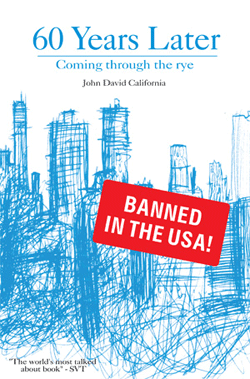Frye is called on in a 2009 amicus curiae brief in a case against Frederik Coulting by J.D. Salinger, who had asserted that Coulting’s book, 60 Years Later, “infringes [his] copyright rights in . . . the character Holden Caulfield.” (Frye’s remarks on Salinger in an earlier post here.)
In the United States Court of Appeals for the Second Circuit
__________________________________
J.D. SALINGER, individually and as trustee of the J.D. Salinger Literary Trust, Plaintiff-Appellee,
v. FREDRIK COLTING, writing under the name John David California, WINDUPBIRD PUBLISHING LTD., NICOTEXT A.B. and ABP, INC., doing business as SCB Distributors, Inc.,
Defendants-Appellants.
On Appeal from the United States District Court for the Southern District of New York
BRIEF OF AMICUS CURIAE PUBLIC CITIZEN, INC.
“That ability to “build freely upon the ideas” in others’ work is essential to First Amendment protection because even the most creative or artistic activity depends on the ability to borrow from what has gone before. “Poetry can only be made out of other poems; novels out of other novels.” Northrop Frye, Anatomy of Criticism 97 (1957). As Frye put it, we have inherited “a literature which includes Chaucer, much of whose poetry is translated or paraphrased from others; Shakespeare, whose plays sometimes
follow their sources almost verbatim; and Milton, who asked for nothing better than to steal as much as possible out of the Bible” (p. 16 of the brief).
